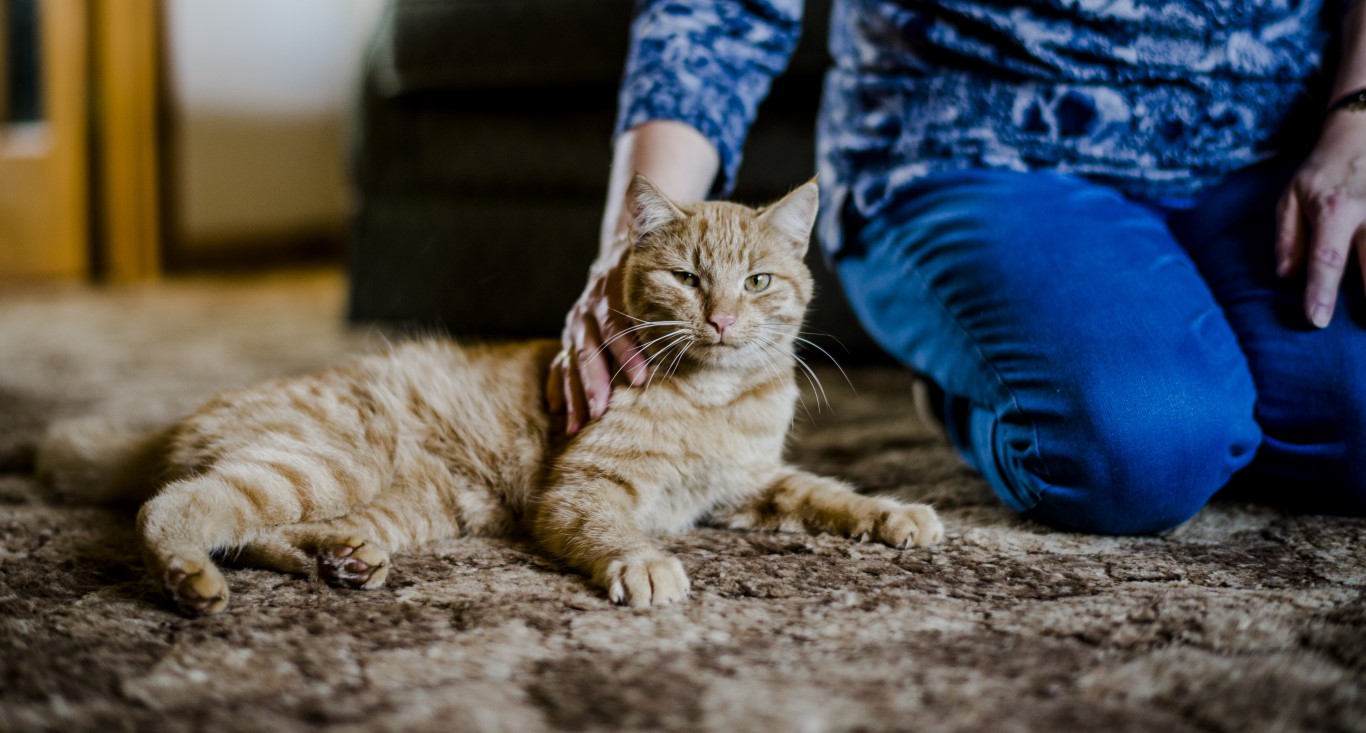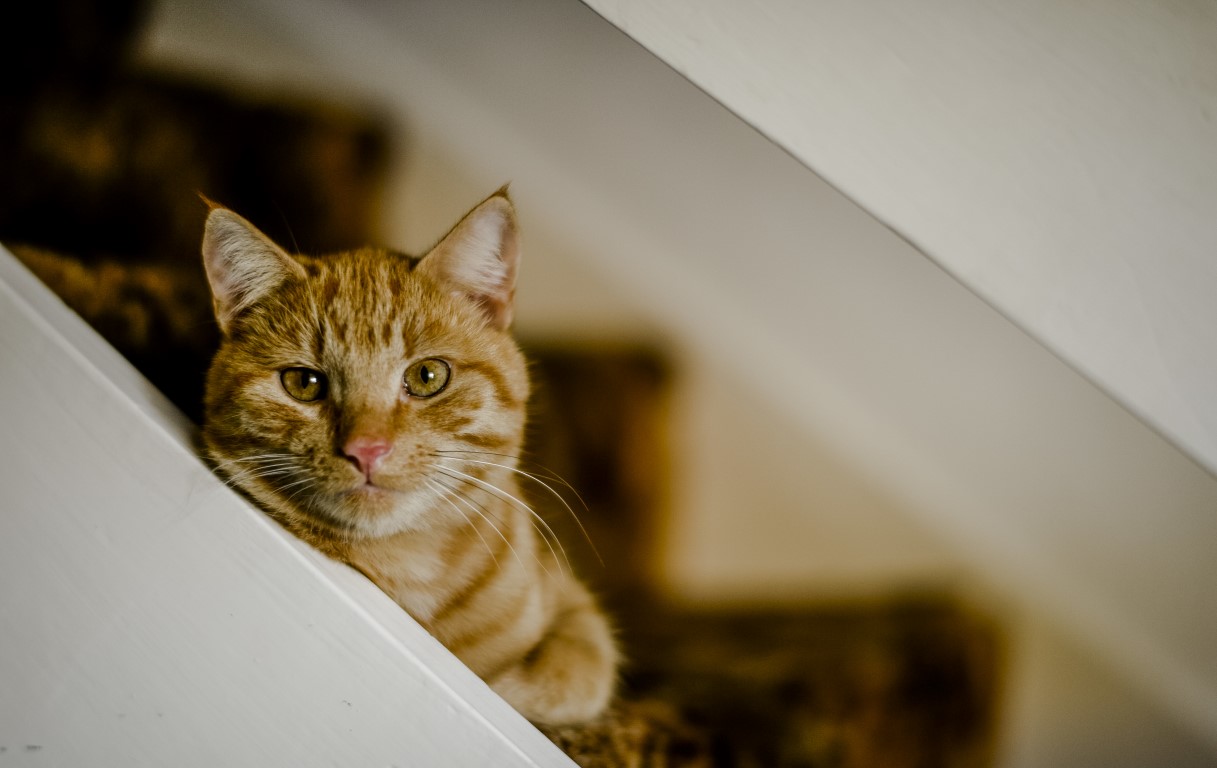
How to help a grieving cat
- Cats may show signs that could be interpreted as grief, including loss of appetite, crying or searching
- Keeping your surviving cat’s routine the same will help them to cope following the death of someone or another pet in the home
- If you want to get another cat to live with your surviving cat, think carefully about whether this is the right thing to do. Even if your surviving cat had a close relationship with cat that has died, it doesn’t necessarily mean that they will benefit from living with another cat. Cats are not social in the same way as people or dogs and can find living with unrelated individuals stressful.
When a person or animal in the home passes away, a surviving cat may show signs that could be interpreted as grief.
Cats may experience:
- loss of appetite
- change in sleep patterns
- crying or searching
- a need for extra attention
- a generally sad demeanour
But you should also note you may not witness any of these changes in your cat. Some cats may appear unaffected by the loss of a pet or person in the home.
Cats have an interesting social system and this will affect the way they feel about losing a cat they live with, so it is difficult to generalise about how your own cat may react. Some cats (usually those who are related) have very close bonds with each other, whereas some will just ‘tolerate’ living with each other. If you lose a confident cat and the shy one is left behind, you may even see a slight change of personality in the surviving cat.
If you have more than one surviving cat in the home, you may notice a change in relationship between these cats following the death of another. Give your cats time to adapt to life after the death of a fellow feline.
Do cats grieve?
Many anecdotes suggest that animals do feel what humans call ‘grief’, including an understanding that the deceased is not coming back, but there is little scientific evidence to back this up in the feline species. What we do know is that many species are affected by loss and experience feelings of sadness and loneliness.
When a person or pet with whom a cat has spent a lot of time passes away, their regular routine is likely to change. Cats can become upset or stressed by this disruption and you may notice a change in their behaviour, including the signs listed above.
Cats may also react if they become aware that you are grieving. Humans’ behaviour changes when they are visibly upset and your pet may pick up on this or experience confusion.
Cats may show no signs at all when another cat in the home passes away. If there was no particular bond between the deceased cat and the surviving cat, you may find your cat appears unaffected by the loss.
How can I help my grieving cat?
Doing your best to keep your cat’s routine the same will help them in the days and weeks following a loss. Try to keep their meal times the same as before. Make sure they are eating, drinking and toileting properly. If your cat goes off their food for two or more days, call your vet urgently due to the risk of liver damage.
Pheromones may help to calm cats that are stressed. Ask your vet about these.
Take the time to focus on the bond between you. Think about the things your cat likes and give them more of that; this could be lots of fuss if your cat enjoys fuss, and for others it might be play or to enjoy the outdoors.
Human or animal, loss affects us all, but we cope best when we care for each other.

Should I show the body of my dead pet to my surviving cat?
If your family pet has died from a cause that doesn’t pose a risk of infection to your surviving cat, and you feel comfortable doing so, you can show your cat the body of your deceased pet.
Do be aware that the body may smell differently to when your pet was alive, and this may upset your cat and cause them to react in a way that is not as calm and ‘respectful’ as you might hope. Remember that cats will not have the same awareness of respect for the dead as people.
Should I get a new pet to keep my cat company?
When a pet passes away it can be tempting to get another quickly, not only for your own benefit, but so your surviving cat will have another companion, but don’t rush into this.
Cats have unique social needs which means they don’t always bond with other cats, even if they have lived alongside them peacefully for many years. We strongly recommend giving your surviving cat time to adapt to life without their companion and avoid getting a new cat or kitten straight away. Getting a new cat soon after the death of another cat could cause your pet even more stress.
If, after a few months, you think your cat would be happy with a new friend, get in touch with your local rehoming centre.
Introductions should be carried out slowly. Read our guide to introducing cats for expert advice.
Only get a new pet if you feel it is the right thing for you, your family, and your pets.
Pet Loss Support is here to provide a free and confidential emotional support for all types of pet loss, including theft, illness, accident, death and rehoming, and also prior to loss.
If you need somebody to talk to, please call us on 0800 096 6606 (8.30am - 8.30pm) or talk to us via Webchat (8.30am to 8.30pm). If you prefer, you can email [email protected]




